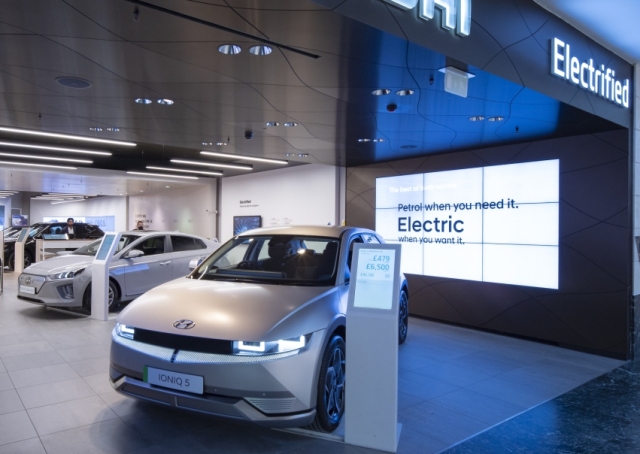Hyundai Motor announced plans to invest 24 trillion won ($18.2 billion) by 2030 to bolster domestic electric vehicle (EV) production and other EV projects.
The group aims to become the third-largest EV maker globally by sales. Kia, Hyundai Motor, and Hyundai Mobis will collectively fund the investment, which will primarily go towards expanding current EV production lines, developing future mobility parts and technologies, establishing EV infrastructure, and exploring new EV business opportunities.
The investment is an effort to align with the industry trend of reducing carbon emissions to combat global warming. This revised investment figure is up from the 21 trillion won announced last year.
By 2030, the two companies plan to sell a total of 3.64 million EVs in global markets. They also plan to release a total of 31 pure electric vehicles by 2030. Kia began construction on a new 150,000-unit-a-year EV plant inside its existing factory in Hwaseong, with a target to begin production in late 2025.
Hyundai Motor in news release said it also plans to complete a 150,000-unit-a-year EV plant in its Ulsan plant by 2025, and a 300,000-unit-a-year EV and battery plant in Georgia, USA, with a goal to begin production in H1 2025. The group aims to achieve a combined sales goal of 7.52 million units this year.
In this year’s CEO Investor Day last week, Kia said it aims to sell 1.6 million EVs in 2030. Hyundai Motor and Kia plan to release a total of 31 battery electric vehicles by 2030, including the Kia EV9 this year and the Hyundai IONIQ 7 next year.
The EV9 is Kia’s second model equipped with Hyundai Motor Group’s EV platform, called E-GMP, after the EV6 SUV launched in 2021. Hyundai’s IONIQ 5 and IONIQ 6 are also built on the same platform. The 31 pure electric vehicles include 18 models from Hyundai and its independent Genesis brand and 13 from Kia.
Hyundai and Kia have set a combined sales goal of 7.52 million units this year, up 9.8 percent from the 6.85 million units they sold last year. The two together form the world’s third-largest carmaker by sales after Toyota Motor and Volkswagen Group.

